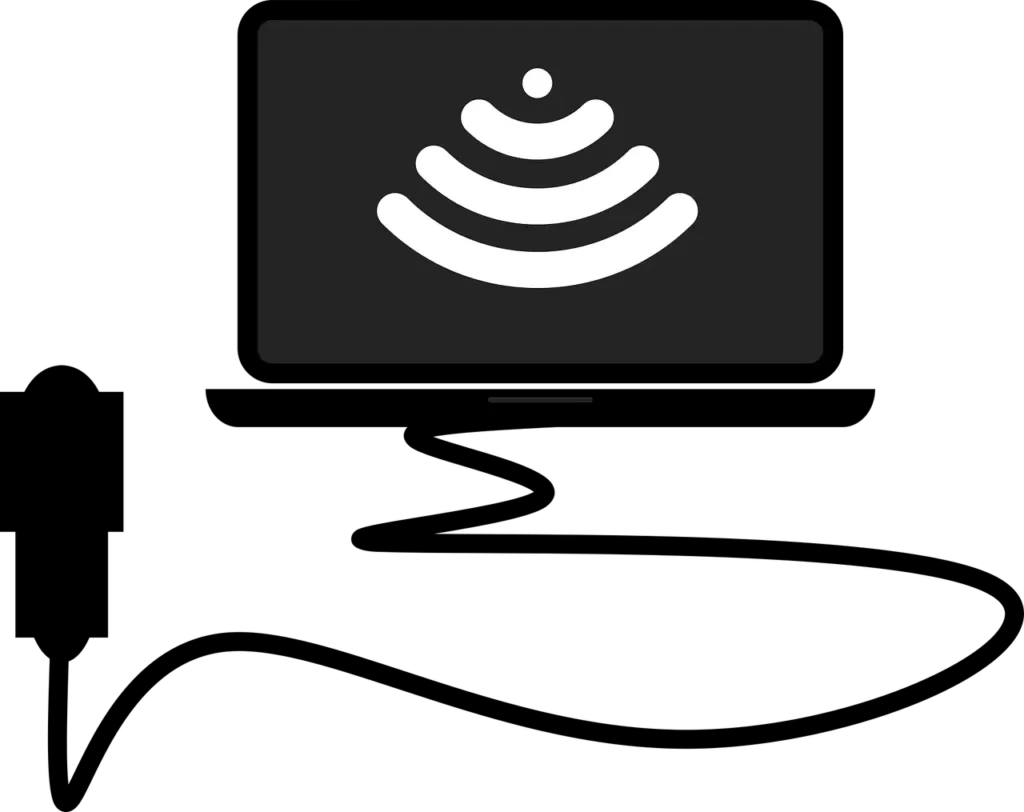Introduction
In today’s technologically advanced world, cars are becoming more sophisticated with each passing day. Modern vehicles are equipped with a plethora of electronic systems that control various aspects of the car’s performance. To efficiently diagnose and address potential problems, car diagnostic scanners have become indispensable tools for mechanics and car owners alike. This article will delve into the significance of car diagnostic scanners, their functionality, and how they have revolutionized the automotive industry.
Table of Contents
What are Car Diagnostic Scanners?
Car diagnostic scanners, also known as OBD (On-Board Diagnostics) scanners, are electronic devices used to communicate with a car’s onboard computer system. They retrieve valuable data from the vehicle’s numerous sensors, processors, and microchips. This data allows the scanner to identify potential issues and provide valuable insights into the car’s overall health.
How Do Car Diagnostic Scanners Work?
Car diagnostic scanners work by connecting to the car’s OBD port, which is usually located beneath the dashboard. Once connected, the scanner communicates with the car’s onboard computer, retrieving diagnostic information. The scanner then interprets this data, revealing any existing or potential problems with the vehicle.
The Evolution of Diagnostic Scanners
Over the years, car diagnostic scanners have evolved significantly. From basic code readers to sophisticated handheld devices, the advancements in technology have made diagnostics more accessible and user-friendly.

Image by Mohamed Hassan from Pixabay
What Are the Best Diagnostic Scanners and Where Can You Buy Them?
When it comes to choosing a diagnostic scanner, it’s essential to consider factors like compatibility, functionality, ease of use, and customer reviews. Below is a chart showcasing some of the best diagnostic scanners, their functions, and where you can buy them:
| Diagnostic Scanner | Functions Included | Where to Buy |
|---|---|---|
| Autel MaxiCOM MK808 | – Full-system diagnostics | Autel Official Website, Authorized Retailers |
| – Oil reset | ||
| – EPB/SAS/BMS/DPF services | ||
| Launch X431 V+ | – Bi-directional control | Launch Official Website, Authorized Distributors |
| – Full-system diagnostics | ||
| – Module coding | ||
| Innova 3160g | – Live data streaming | Online Marketplaces |
| – ABS/SRS diagnosis | ||
| – Oil light reset | ||
| BlueDriver Bluetooth | – Wireless connectivity via Bluetooth | BlueDriver Official Website |
| Professional OBDII | – Detailed repair reports | |
| Scan Tool | – Compatible with Android and iOS devices | |
| Foxwell NT624 Elite | – Full-system diagnostics | Foxwell Official Website, Authorized Retailers |
| – EPB/SAS/BMS services | ||
| – Oil service reset |
Functions of Diagnostic Scanners
Automotive diagnostic scanners offer a wide range of functions that aid in identifying and resolving vehicle issues. Let’s explore some common functions found in these scanners:
1. Read and Clear Codes
One of the primary functions of a diagnostic scanner is to read and clear trouble codes from a vehicle’s onboard computer. These codes provide valuable information about the root cause of a malfunction, enabling technicians to address the specific issue accurately.
2. Live Data Streaming
Live data streaming allows real-time monitoring of various vehicle parameters, such as engine RPM, coolant temperature, and oxygen sensor data. This function is invaluable when diagnosing intermittent issues or monitoring the performance of a vehicle in real-time.
3. Full-System Diagnostics
Advanced diagnostic scanners offer full-system diagnostics, providing access to all electronic systems within the vehicle. This comprehensive analysis helps uncover hidden issues in different modules, resulting in a more thorough diagnosis.
4. Bi-Directional Control
Certain high-end scanners feature bi-directional control capabilities, allowing technicians to actuate various components within the vehicle. This functionality proves beneficial during testing, calibrations, and system adjustments.
5. Special Functions
Many diagnostic scanners come with special functions like oil reset, ABS/SRS diagnostics, battery management system (BMS) reset, steering angle sensor (SAS) calibration, and diesel particulate filter (DPF) regeneration. These specialized features enhance the versatility of the scanner and assist in performing complex tasks.
Where to Buy Diagnostic Scanners
Now that we’ve explored some top-notch diagnostic scanners and their functions, it’s essential to know where you can purchase them. These scanners are available through various channels, each with its own advantages:
1. Official Brand Websites
Purchasing directly from the official website of the brand ensures that you’re getting an authentic product with manufacturer support and warranty.
2. Authorized Retailers
Many reputable automotive retailers are authorized dealers for top diagnostic scanner brands. Buying from them guarantees genuine products and access to after-sales support.
3. Online Marketplaces
Popular online marketplaces like Amazon and eBay offer a wide selection of diagnostic scanners from various brands. However, it’s crucial to verify the seller’s credibility and read customer reviews before making a purchase.
4. Specialized Automotive Stores
Local automotive stores and specialty shops might carry diagnostic scanners, providing you with the opportunity to examine the product in person before buying.
5. Automotive Trade Shows
Attending automotive trade shows and exhibitions often allows you to explore multiple brands and models in one place. It also provides an opportunity to interact with experts in the field.
Types of Car Diagnostic Scanners
There are several types of car diagnostic scanners available on the market today:
5.1 OBD-I Scanners
OBD-I scanners are designed to work with older vehicles manufactured before 1996. These scanners use unique connectors and protocols specific to each car manufacturer.
5.2 OBD-II Scanners
OBD-II scanners are the most common type and work with vehicles manufactured from 1996 onwards. They utilize a standardized OBD port and provide more extensive diagnostic information compared to OBD-I scanners.
5.3 Bluetooth OBD Scanners
Bluetooth OBD scanners are compatible with smartphones and tablets. They offer the convenience of wireless connectivity, allowing users to access diagnostic data via dedicated apps.
5.4 Handheld Diagnostic Scanners
Handheld diagnostic scanners are all-in-one devices with built-in screens and controls. They offer comprehensive diagnostic capabilities and are commonly used by professional mechanics.
Benefits of Using Car Diagnostic Scanners
Car diagnostic scanners provide numerous benefits to car owners and mechanics:
- Quick and accurate identification of problems
- Cost-effective repairs by pinpointing specific issues
- Continuous monitoring for preventative maintenance
- Easy access to real-time data for informed decision-making
Troubleshooting with Car Diagnostic Scanners
Car diagnostic scanners offer various troubleshooting functionalities:
7.1 Reading Diagnostic Trouble Codes (DTCs)
Diagnostic Trouble Codes are specific codes that indicate potential issues within the vehicle. Car diagnostic scanners can read and interpret these codes, providing valuable insights into the underlying problem.
7.2 Live Data Stream
Car diagnostic scanners can access real-time data from various sensors, allowing users to monitor critical parameters like engine RPM, coolant temperature, and oxygen levels.
7.3 Clearing DTCs and Resetting Check Engine Light
Once an issue is addressed, car diagnostic scanners can clear DTCs and reset the check engine light, signifying that the problem has been resolved.
How to Choose the Right Car Diagnostic Scanner?
Selecting the right car diagnostic scanner depends on several factors:
- Car make and model compatibility
- Diagnostic capabilities and features
- Connectivity options (wired or wireless)
- User-friendliness and interface design
Tips for Using Car Diagnostic Scanners Effectively
To make the most of a car diagnostic scanner, consider the following tips:
- Follow the manufacturer’s instructions carefully.
- Regularly update the scanner’s software for enhanced performance.
- Take safety precautions when working with the car’s internal systems.
Common Misconceptions About Diagnostic Scanners
10.1 Car Diagnostic Scanners and Emissions Testing
Some people believe that diagnostic scanners can alter emissions test results. However, these scanners do not have the capability to manipulate emissions data.
10.2 Can Diagnostic Scanners Damage Your Car?
When used correctly, diagnostic scanners do not cause any harm to the car’s electronic systems. They are designed to read data, not alter it.
The Future of Car Diagnostics
As automotive technology continues to advance, car diagnostic scanners will play an increasingly vital role. Future scanners are likely to offer even more comprehensive diagnostics and seamless integration with other smart devices.
Conclusion
Car diagnostic scanners have become indispensable tools for car owners and mechanics alike. Their ability to provide real-time data and accurately identify potential issues has revolutionized the automotive industry. Investing in a high-quality car diagnostic scanner can save time, money, and offer peace of mind for anyone who loves their vehicle.
FAQs
13.1 What is the difference between OBD-I and OBD-II scanners?
OBD-I scanners are designed for older cars, while OBD-II scanners are compatible with modern vehicles, providing more extensive diagnostic information.
13.2 Can I use a car diagnostic scanner if I’m not a car expert?
Yes, car diagnostic scanners come with user-friendly interfaces and can be used by car enthusiasts of all levels.
13.3 Will a diagnostic scanner work with all car makes and models?
Not all scanners are compatible with every make and model. Ensure the scanner you choose is compatible with your vehicle.
13.4 How often should I perform car diagnostics?
Performing regular diagnostics is recommended, especially before long trips or when you notice any unusual behavior in your vehicle.
13.5 Can car diagnostic scanners be used to detect hidden issues?
Yes, car diagnostic scanners can identify underlying issues that might not be apparent through visual inspection, helping prevent potential breakdowns and accidents.

